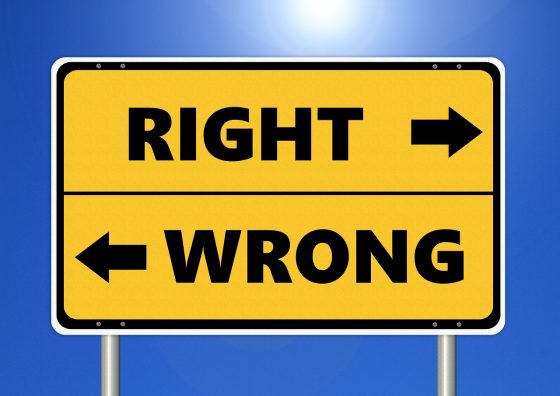There’s a doctrine in America, not found in the Constitution but simply created by courts, to grant immunity to government officials for some events for which they otherwise could face liability.
It was used when “Sylvia Gonzalez spent a day in jail because her political opponents wanted to teach the then-72-year-old grandmother and city councilwoman a lesson. The mayor and police chief of Castle Hills, Texas, used trumped-up charges to jail Sylvia in retaliation for speech critical of another local government official. The charges were later dropped,” reports the Institute for Justice.
It appeared, too, when “Allan Minnerath saw his company’s trucks and drivers detained for hours by an overzealous county road engineer in Mahnomen County, Minnesota. The official, who opposed a state contract awarded to Allan’s firm, decided to do something about it: He changed the weight limits on roads he knew the trucks would travel, then played traffic cop by personally stopping the now-overweight vehicles.”
That’s not all: “Shaniz West had her Caldwell, Idaho, home destroyed by police after she gave them permission to search the residence for her fugitive ex-boyfriend. Rather than use the keys she gave them, police shot tear gas grenades into the home, rendering it uninhabitable and ruining all of Shaniz’s and her children’s belongings.”
They all are IJ clients “whose constitutional rights were violated by government officials, and all three sought justice by suing those government officials.”
However, those officials all tried to escape by claiming qualified immunity.
“Created by the U.S. Supreme Court in 1982, qualified immunity is a special protection for government officials. Under the doctrine, officials cannot be sued or held civilly liable for violating a person’s constitutional rights unless the person can identify a previous decision from the Supreme Court or the federal appellate court in the same jurisdiction ‘clearly establishing’ that such conduct is unconstitutional. And this protection applies even if officials intentionally, maliciously, or unreasonably violated the Constitution.”
The Institute for Justice now has a report that digs into what could be “America’s most controversial legal doctrine.”
It’s often presumed to be used, and it actually is used, by police.
“The Supreme Court intends for qualified immunity to give government officials leeway to make reasonable mistakes—especially in tense or dangerous situations requiring quick thinking—without facing lengthy litigation, onerous discovery, or financial ruin.”
But critics charge that “qualified immunity sets too high a bar for victims of abuse to seek justice and winds up protecting officials who intentionally, maliciously, or unreasonably violate the Constitution.”
The new report documents evidence from federal appellate cases from 2010 through 2020.
“It is the first to use cutting-edge automated techniques to parse thousands of federal circuit court opinions and answer key questions about cases where government defendants claim qualified immunity—what kinds of officials and conduct it protects, its impact on civil rights cases, and whether the doctrine is achieving its aims.”
The study’s key findings that such cases are becoming more and more coming, with at least 5,526 cases on appeal during that time, some 500 a year.
“Contrary to popular belief, qualified immunity is not just about police accused of excessive force. It shields a wide array of government officials and conduct,” the IJ reported.
For example, half of appeals featured other types of government officials, either alongside or instead of police. Prison officials made up the next largest share, but in more than one in five of all appeals, or 21%, defendants were neither police nor prison officials. These other officials included mayors and city managers, university and school officials, prosecutors and judges, and child protective services workers.”
The most common violations were excessive force, false arrest, and violations of the First Amendment.
In the latter category, “plaintiffs alleged government officials engaged in premeditated retaliation for protected speech or activity.”
Stunningly, 59% of those First Amendment fights “nvolved plaintiffs alleging premeditated abuse by government officials in retaliation for protected First Amendment activity.”
The report noted that when government entities lose their immunity claims, they have a special right to an immediate appeal that is denied to other case participants.
The institute explained, “Qualified immunity confuses instead of clarifies the rules government workers must follow to avoid burdensome litigation. If legal experts struggle to make sense of qualified immunity, the average government official—let alone one facing a life-or-death situation—cannot be expected to do so.”
Further, it said, “These results suggest qualified immunity shields a much wider array of government officials and conduct than commonly thought. They also add to a growing body of research finding qualified immunity protects officials too much and our rights too little, all while failing to achieve its goals. This strengthens the argument for the Supreme Court or Congress to temper or—better yet—abolish the doctrine.”

